All Stories
-
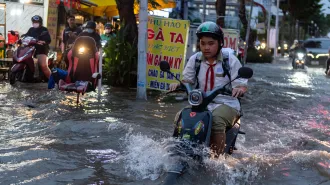 Climate
ClimateHundreds of studies have missed how much the oceans are rising
A widely used method to calculate sea level rise may have missed up to a century of change, so the risks could hit home for millions sooner than thought.
By Nikk Ogasa -
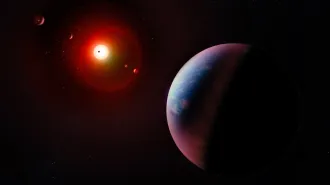 Planetary Science
Planetary ScienceA chemical ‘Goldilocks zone’ may limit which planets can host life
Life needs nutrients like nitrogen and phosphorus. But without the right balance of oxygen, these elements get locked away in planets’ cores.
-
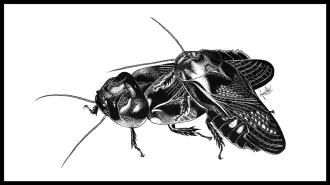 Animals
AnimalsCockroaches that eat each other’s wings turn into a fierce fighting force
The wood-feeding cockroach’s cannibalistic love bites lead to a lasting bond. Afterward, the pair prefer each other over all other roaches.
-
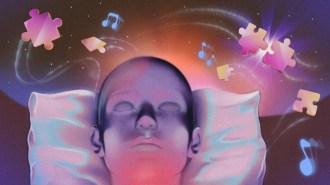 Neuroscience
NeuroscienceThe right sounds may turn sleep into a problem-solving tool
Lucid dreamers who heard puzzle-linked soundtracks while sleeping were more likely to solve those unsolved problems the next day.
-
 Health & Medicine
Health & MedicineOver 40? Your rotator cuff probably looks a little rough
MRI scans of over 600 Finnish adults found that nearly all had frayed, torn or otherwise abnormal rotator cuffs — yet most had no symptoms.
By Meghan Rosen -
 Health & Medicine
Health & MedicineSimulations of your gut may predict which probiotics will stick
A “digital gut” predicted which probiotics and high‑fiber diets would take hold in people's guts and produce healthier outcomes.
-
 Health & Medicine
Health & MedicineA rising percentage of U.S. teens aren’t getting enough sleep
Teens need eight to 10 hours of sleep each night. A large majority get less than that, according to a national survey of U.S. high school students.
-
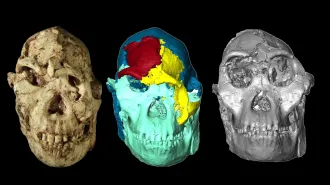 Anthropology
AnthropologyThe ancient human ancestor ‘Little Foot’ gets a new face
A new digital reconstruction of the face of an early Australopithecus specimen helps add details about the origins of our own species.
By Jay Bennett -
 Space
SpaceNASA scraps its 2027 moon landing, adds two missions in 2028
Rather than land astronauts on the moon, the Artemis III mission will now focus on docking and space suit tests in low Earth orbit.
-
 Climate
ClimateTake it from the Olympics, slushy winter sports may be the new normal
Ice arenas and artificial snow now dominate the winter Olympics. Athletes there — and everywhere — may need to adjust how they train and perform.
-
 Neuroscience
NeuroscienceWhy is math harder for some kids? Brain scans offer clues
Kids with math learning disabilities process number symbols differently than quantities shown as dots — and it shows up in MRIs.
By Lily Burton -
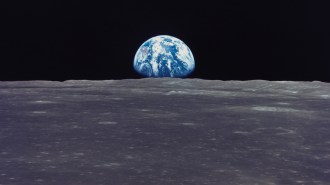 Science & Society
Science & SocietyOn moonshots and Minneapolis
Space exploration can bring people together and reflect deep societal divisions.